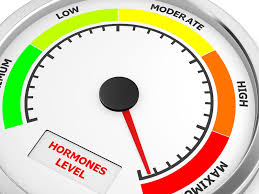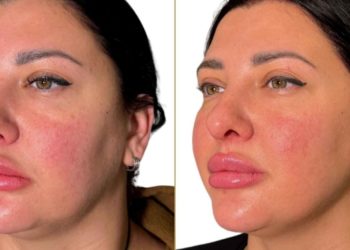Have you ever wondered why your energy, strength, or metabolism just isn’t what it used to be? As adults age, the body naturally produces less human growth hormone (HGH), which can impact everything from sleep and muscle tone to mood and fat distribution. But here’s the good news: optimizing your growth hormone levels doesn’t always require drastic measures. Small, consistent lifestyle changes can make a big difference.
This article explores simple, science-backed ways to support healthy HGH production—without the hype. Whether you’re curious about how to boost your energy, improve recovery, or better manage your weight, the tips below will help you understand how to work with your body to feel stronger, sharper, and more balanced.
How to Know If You Have a Growth Hormone Deficiency
Before trying to boost your growth hormone levels, it’s important to understand whether you have a deficiency. While HGH naturally declines with age, some adults experience a more significant drop that affects their energy, body composition, and overall health. This condition is known as adult growth hormone deficiency (GHD).
Common signs include chronic fatigue, decreased muscle mass, increased belly fat, poor sleep, low libido, and difficulty concentrating. These symptoms can overlap with other conditions, so self-diagnosis isn’t reliable.
The only way to know for sure is through medical testing, which typically involves blood analysis of HGH and IGF-1 levels. A proper diagnosis will help determine whether treatment is necessary and what approach is safest for you. For patients requiring HGH, here is a great website kingsbergmedical.com, where you can ask any questions and get expert medical advice about treatment options.
Prioritize Deep, Quality Sleep
One of the most effective and overlooked strategies for increasing growth hormone levels is getting proper sleep. The majority of HGH is secreted during deep stages of non-REM sleep, particularly in the first few hours after falling asleep. Missing out on those early, restorative stages can disrupt this natural hormone release.
To support deeper sleep, establish a consistent bedtime routine, avoid screens before bed, and keep your bedroom cool and dark. Even small changes like limiting caffeine in the afternoon or practicing mindfulness at night can significantly enhance sleep quality—and by extension, growth hormone production.
Maintain a Healthy Weight and Control Belly Fat
Excess abdominal fat, particularly visceral fat, is linked to lower levels of growth hormone in adults. Research shows that carrying too much fat around the midsection can disrupt the body’s natural hormone cycles, including HGH release.
Losing even a modest amount of weight can lead to measurable improvements. Focus on a combination of strength training, cardio, and a balanced diet low in added sugars and processed foods. Reducing insulin spikes through lower-glycemic meals can also help, as high insulin levels tend to suppress HGH.
Exercise with Intensity (But Smartly)
Physical activity—especially high-intensity interval training (HIIT) and resistance training—is a natural stimulator of HGH. Short bursts of effort, like sprinting or circuit training, trigger the body’s demand for recovery, which in turn boosts hormone production.
That said, overtraining can backfire, leading to elevated cortisol levels that suppress HGH. The key is balance: combine challenging workouts with adequate rest days. Even brisk walking and moderate resistance exercises can offer benefits without putting stress on the system.
Embrace Intermittent Fasting Carefully
Intermittent fasting has gained popularity not only for weight loss but also for its effects on hormone regulation. Short-term fasting increases HGH secretion by reducing insulin levels and improving the body’s responsiveness to HGH.
However, intermittent fasting isn’t for everyone. If you’re considering it, start with a gentle version like a 12–14 hour overnight fast and consult your doctor before committing to longer fasts. Pair fasting with nutrient-rich meals to avoid nutritional deficiencies that can hinder hormone production.
Focus on Protein and Amino Acids
Protein-rich foods—especially those containing amino acids like arginine, glutamine, and ornithine—play a vital role in HGH synthesis. These amino acids can stimulate the pituitary gland to release more growth hormone naturally.
Incorporate high-quality protein sources such as eggs, fish, chicken, Greek yogurt, quinoa, and legumes into your diet. Timing matters too: having a protein-rich snack before bed may support HGH release during sleep. But avoid heavy or fatty meals late at night, as they can interfere with deep sleep and hormone rhythms.
Limit Sugar and Refined Carbohydrates
Chronically high blood sugar and insulin levels are known inhibitors of growth hormone secretion. When you consume sugary snacks or refined carbs throughout the day, your insulin levels remain elevated, which reduces HGH output.
To combat this, adopt a diet centered on whole grains, vegetables, healthy fats, and lean protein. Save sugary treats for special occasions, and try to space meals to allow blood sugar levels to normalize between them. Your endocrine system will thank you with better hormone balance and improved overall health.
Reduce Stress to Avoid Cortisol Overload
Chronic stress floods the body with cortisol, a hormone that directly opposes growth hormone. When cortisol levels are elevated for extended periods, HGH secretion is suppressed, leading to fatigue, poor sleep, and even weight gain.
Incorporate stress-management techniques like deep breathing, meditation, yoga, or simple walks in nature. Even ten minutes a day can help lower cortisol and reset your body’s ability to produce growth hormone. Don’t underestimate the power of unplugging from screens or setting healthy work-life boundaries.
Don’t Overdo Alcohol or Late-Night Eating
Both alcohol and heavy nighttime meals can reduce the body’s ability to enter the deep sleep cycles that trigger growth hormone release. A late glass of wine or a big dinner may seem harmless, but over time, they can significantly affect hormone health.
If you enjoy a drink, aim for moderation and earlier in the evening. Similarly, keep dinners light and try to finish eating at least 2–3 hours before bed. This gives your digestive system a rest and primes your body for optimal hormonal repair during sleep.
Know When to Seek Medical Help
If you’ve made lifestyle changes and still experience persistent symptoms like fatigue, low libido, weight gain, or muscle loss, it could be a sign of GHD. In medically diagnosed cases, growth hormone therapy may be recommended. Treatments are only available with a prescription and under supervision.
Final Thoughts
Balancing your growth hormone levels doesn’t mean you need to follow extreme diets or turn to risky shortcuts. Instead, a thoughtful combination of better sleep, smart nutrition, regular exercise, and stress control can go a long way. In some cases, medical evaluation is necessary to identify deeper imbalances.
Growth hormone is just one part of your body’s complex hormonal ecosystem, but it plays a key role in how energetic, strong, and youthful you feel. These strategies will not only support GH naturally but also improve your overall health and well-being in the long run.


![7 Best POS Software in the UK [2026 Edition]](https://todaynews.co.uk/wp-content/uploads/2026/02/7-Best-POS-Software-in-the-UK-2026-Edition-360x180.png)








































































